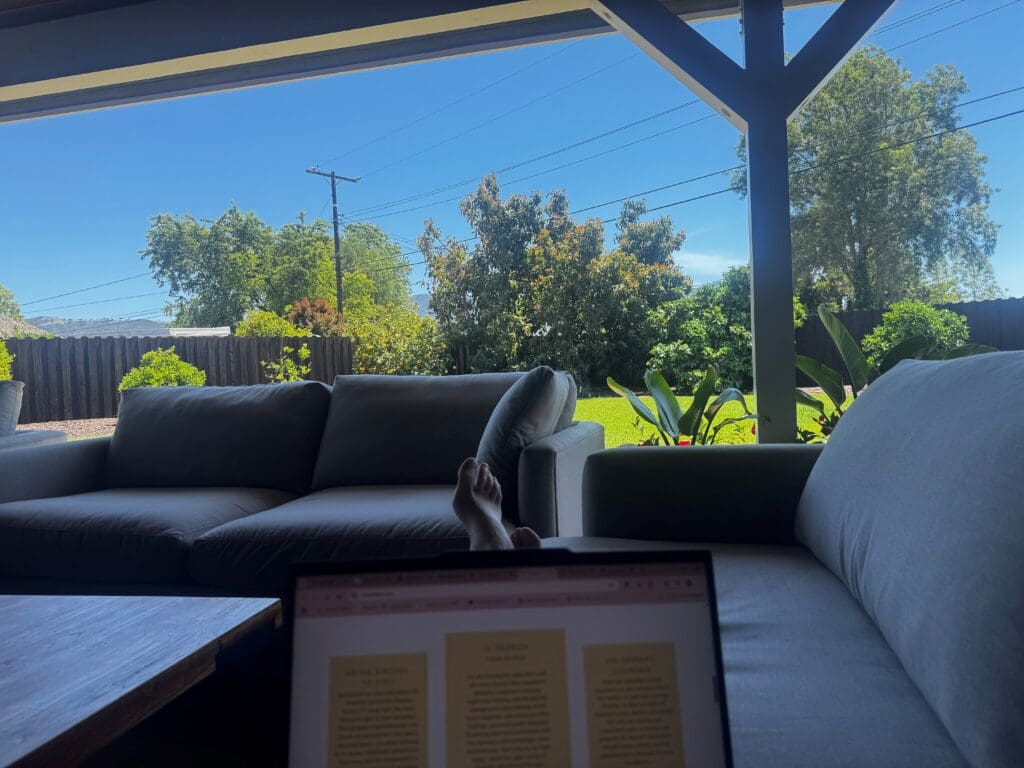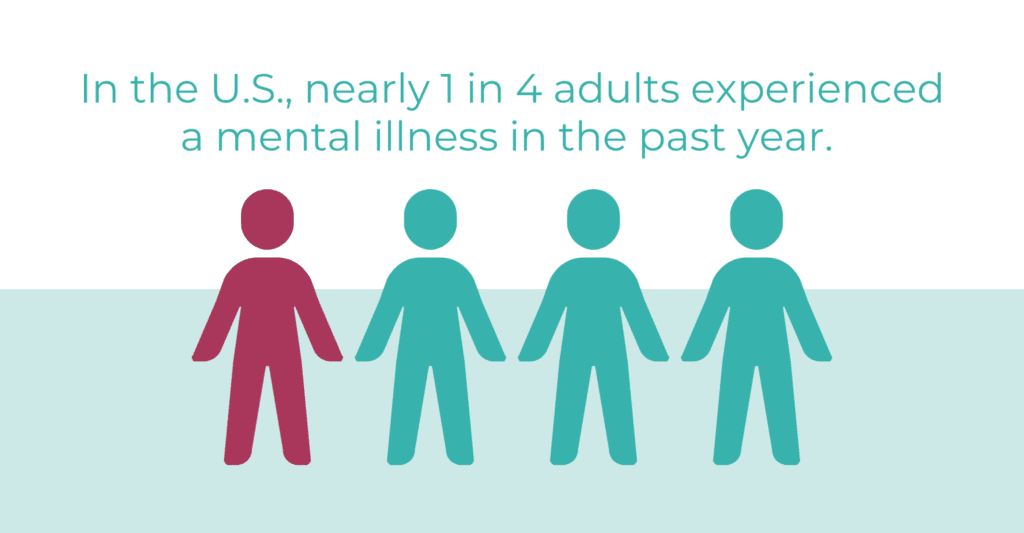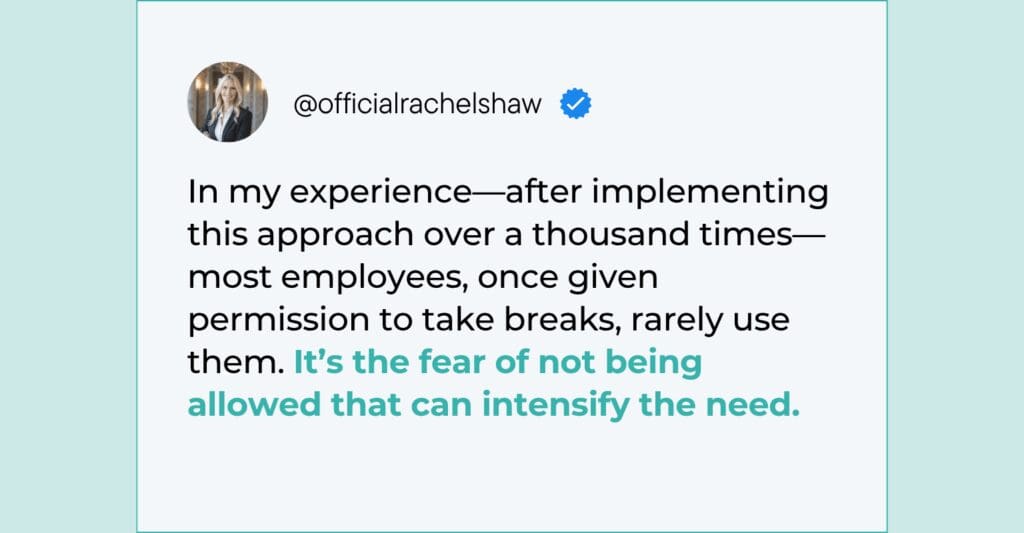Real-World Insights for Brave Workplaces: Beyond Disability Compliance
If you’re reading this, I want to start by saying how much I appreciate you. This is the first issue of The Courage Quotient, my new quarterly newsletter, and I’m thrilled to have you here.
For the past 25 years, I’ve worked long hours (and then some) to design tools, protocols, and programming that help open the doors of employment to disabled workers. When I began this journey, there was very little guidance available, mostly just a string of costly legal cases that served as warnings. But look how far we’ve come.
What started as compliance-by-fear has evolved into robust, proven systems that empower employers not just to know what to do—but to actually do it well. These efforts haven’t just reduced litigation risk; they’ve changed lives. They’ve expanded access to work; allowed thousands of individuals with disabilities or injuries to participate fully in the workforce; and created workplaces that are more diverse, stronger, and more human.
This is work I’m deeply proud of—and I know many of you feel the same way.
But now it’s time for me to pivot.
As I step into the next half of my career, I’m shifting from being a primary service provider to a true educator and partner. My mission going forward is to empower you—HR professionals, risk managers, and organizational leaders—to build these programs in-house, with clarity and confidence. I’ll still be teaching, training, and working closely with organizations—but with a renewed focus on helping you master this work from the inside out.
This newsletter is part of that effort. It’s where I’ll share practical insights, field-tested strategies, and lessons from the real world of disability compliance. But I’ll also go beyond compliance—to talk about what I’ve learned from watching thousands of people navigate work, life, and leadership.
Because when you sit on the front lines of this kind of work, you learn a lot—not just about the law, but about what helps people thrive. About resilience. About growth. About what success really means.
I’m excited to bring you into these conversations.
The Backyard
Welcome to The Backyard—a little corner of this newsletter where I step away from protocols and policies and share something a bit more personal. My actual backyard is where I work when I’m home, where I do my best thinking, and where I’m often reminded of what matters most. In this space, I’ll share reflections, stories, or just a behind-the-scenes look at what’s inspiring me lately—because the best ideas don’t always come from behind a desk.

I listen to movies on repeat the way some people listen to music. I know—it’s a little odd. But it’s become one of my favorite self-care habits. Whether I’m getting ready in the morning, driving a long distance, or doing chores around the house, I’ll have a familiar movie playing in the background. I don’t need to watch—I’ve seen it enough times to know every word, every pause. It’s like auditory comfort food.
This started back in 2016, when I needed a break from the constant news cycle. And in 2025, I’ve brought it back as part of my self-care routine. Right now I’m completely hooked on Pride & Prejudice (the 2005 version). I didn’t watch Succession, which I think helps me still like Mr. Darcy.
So in the spirit of sharing: If you’re looking for something calming, familiar, and just a little strange (in a good way), give it a try. And if you already have your own “background movie,” I’d love to know what it is.
Mental Health Awareness Month: Let’s Talk About Depression 🧠
Depression is now the leading cause of ill health and disability worldwide, affecting an estimated 280 million people globally. In the U.S., nearly 1 in 4 adults experienced a mental illness in the past year (2024 State of Mental Health in America report). These numbers are staggering—but they’re more than statistics.

They’re us. They’re our colleagues, our friends, our family—and often ourselves.
This May, in honor of Mental Health Awareness Month, I want to say three important things:
1. You are not alone.
Mental health challenges don’t discriminate. They touch all of us—regardless of job title, income, or resilience. If you’re struggling, please know this: You are not broken. You are not failing. You are human.
2. You can get help.
Support is closer than you think. Reach out to your or your partner’s employee assistance program (EAP)—most offer free, confidential services. Call your insurer for mental health referrals. Text a friend. Speak to someone who knows you, sees you, and loves you. Connection is powerful.
3. You’ve got this.
There’s no shame in needing support. There’s only courage in asking for it. Whether you’re just feeling off or facing something bigger, take the next small step. Your future self will thank you.
In my career helping employers build inclusive workplaces, I’ve seen how much stronger we become when we stop hiding pain and start making space for honesty and healing.
So this month, let’s go beyond awareness. Let’s talk. Let’s check in. Let’s care louder. You are seen. You are valued. And you are not alone.
Sources:
World Health Organization: Depression: Let’s Talk
WHO Fact Sheet on Depression: WHO Depression Overview
Mental Health America: 2024 State of Mental Health in America

Real lessons. Real challenges. Real results.
In this section, I’ll share stories and insights from the front lines of disability compliance—situations I’ve encountered in real organizations, with real people, and the lessons we can all take from them.
No hypotheticals. Just the kind of insight that only comes from doing the work.
The Break Request That Taught Me Everything
I met “Patricia” early in my career—back when I was still green, and still figuring out how to move organizations beyond “I just know it won’t work”–based decisions. She had disclosed that she was struggling with anxiety and depression, and submitted a note from her LCSW recommending “breaks as needed to be able to utilize techniques to manage her condition.”
At the time, I didn’t have the confidence—or the experience—to approach this kind of request with nuance. So I followed my standard protocol and sent the provider a questionnaire asking:
- How many breaks per day or per week?
- How long is each break?
- Will there be advance notice before she leaves for the break?
- What happens if a break isn’t possible due to business needs?
As you might guess, the provider essentially responded: I have no idea.
Years (and hundreds of similar cases) later, I’ve learned a better way.
While I can’t speak for every person managing anxiety or depression, I’ve found that in roughly 75% of the cases I’ve managed over the past 25 years, what the employee often needs more than the breaks themselves is permission—the psychological safety to take a break if they need it.
So now, when I receive a request like this, I start with a conversation. I ask the employee: How do the breaks help you? Do you have any idea how often these may be needed? Often, the response is simple: “I don’t know, but I just want to be able to step away—leave the floor, shut my office door—without fear of discipline.”
So we can gather real data rather than operate from assumptions, I then set up a trial accommodation, usually for one month:
- When the employee takes a break (outside of standard rest or lunch), they send an email with the subject line Leaving for Break.
- When they return: Returned from Break.
At the end of the trial, we review the data. The results vary, but often:
- Breaks are rare and unobtrusive—no more than what colleagues might take for coffee or smoke breaks.
- The data supports flexibility—like adjusting work schedules to accommodate break needs without loss of productivity.
In some cases, the trial reveals that the accommodation is not feasible. But this result allows for an informed discussion based on facts—not fear.
Here’s what matters: A trial doesn’t commit you to saying an accommodation is or isn’t reasonable. It simply means you’re gathering evidence so decisions are based on reality—not a fear of what might happen.
In my experience—after implementing this approach over a thousand times—most employees, once given permission to take breaks, rarely use them. It’s the fear of not being allowed that can intensify the need. It’s a bit like being told you won’t have access to a restroom before a long drive—suddenly you have to go.

I made Patricia jump through more hoops than I would today, simply because I didn’t know better. But she helped make me a better disability compliance professional—and made her employer more open to trying reasonable, flexible solutions, even when the outcome wasn’t immediately clear.
Trial accommodations are efficient, insightful, and often the best way to find the yes in disability compliance.
Recommended Resources:
EEOC Guidance on Mental Health Conditions in the Workplace 📘
A helpful overview of how federal law applies to employees with depression, PTSD, and other mental health conditions.
Job Accommodation Network (JAN) – Mental Health Accommodations 🛠
Practical ideas for accommodating employees with anxiety, depression, and other psychological disabilities.
DFEH’s California Guidance on the Interactive Process 📄
Great resource if you’re operating in California. It outlines employer responsibilities and examples under FEHA.
Mental Health America: Workplace Resources 📊
Articles, stats, and strategies to build mentally healthy work environments.
Published Perspectives
Curious for more? Here are a few pieces I’ve written elsewhere that dive deeper into disability compliance, inclusive leadership, and building brave workplaces.
view + leave comments . . .